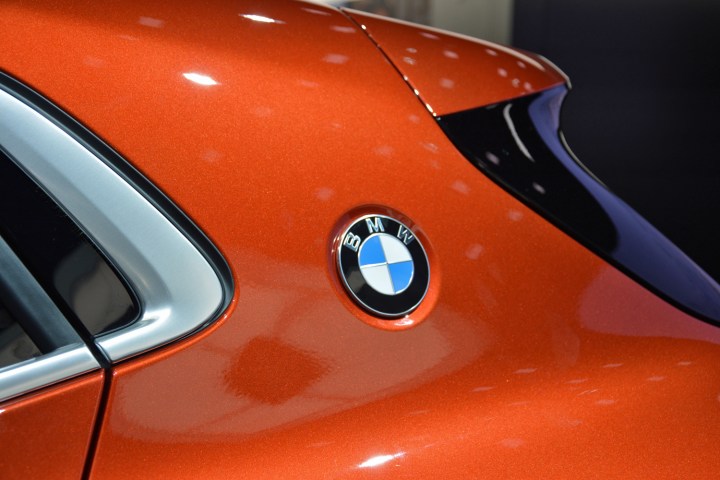
Like a majority of its rivals, BMW continues to zero in on the crossover and SUV segments in order to keep growing. The Munich-based company demonstrated a surprising amount of foresight when it released the original X6 in early 2008, a contentious model which has nonetheless spawned a diverse array of competitors in recent years. It’s now looking into new segments to maintain the momentum.
BMW currently makes models called X1, X2, X3, X4, X5, X6, and it will soon build the three-row X7. What can possibly come next?
One option that, according to the brand, remains on the table is a convertible crossover in the vein of Land Rover’s Range Rover Evoque Convertible. It’s not a high-volume model and it will never become one, but it’s a brand-builder that fills a niche and BMW understands that. Volkswagen has already announced it’s jumping on the bandwagon, though we won’t see the model in the United States. BMW could, too.
“It’s a really interesting topic,” answered Ralph Mahler, BMW’s director of product planning and strategy, when Digital Trends asked for his thoughts on the idea of a convertible crossover. “All these kinds of questions we have asked ourselves in the past. Whether or not there is a possibility, whether or not there is a market. You see the lineup at the moment. We don’t have one but nevertheless I think it’s still an interesting question,” he added.
British magazine Autocar recently added another piece to the puzzle. Klaus Fröhlich, BMW’s head of development, told the publication his team isn’t ruling out a flagship model named X8. It could take the form of a long-wheelbase version of the upcoming X7 with more seats for the rear passengers or it could receive a fastback-like roof line inspired by the X4 and the X6. Either way, it will offer space for four passengers and compete against other high-end SUVs like the Bentley Bentayga, the Land Rover Range Rover, and the Lamborghini Urus.
Nothing is set in stone yet, but fans of SUVs and crossovers are in for a treat. BMW won’t ditch its traditional sports cars, though. The relative decline of the traditional coupe and convertible segment doesn’t worry Mahler.
“Even if the segment is decreasing, it doesn’t mean it’s going to stay that way for the next five or 10 years,” he told us. “To be honest, I think there will always be a certain demand out there for cars like that.”



